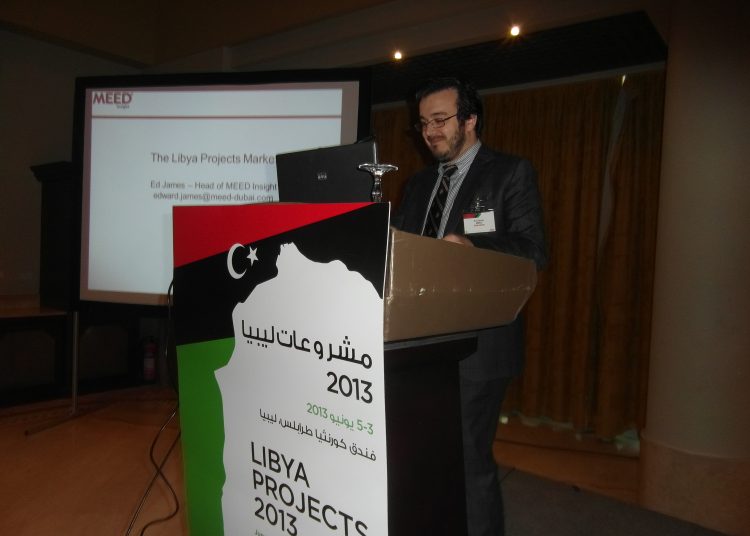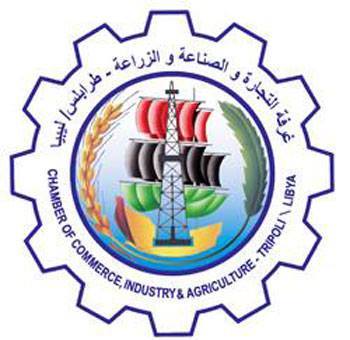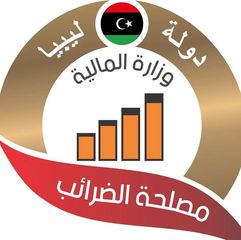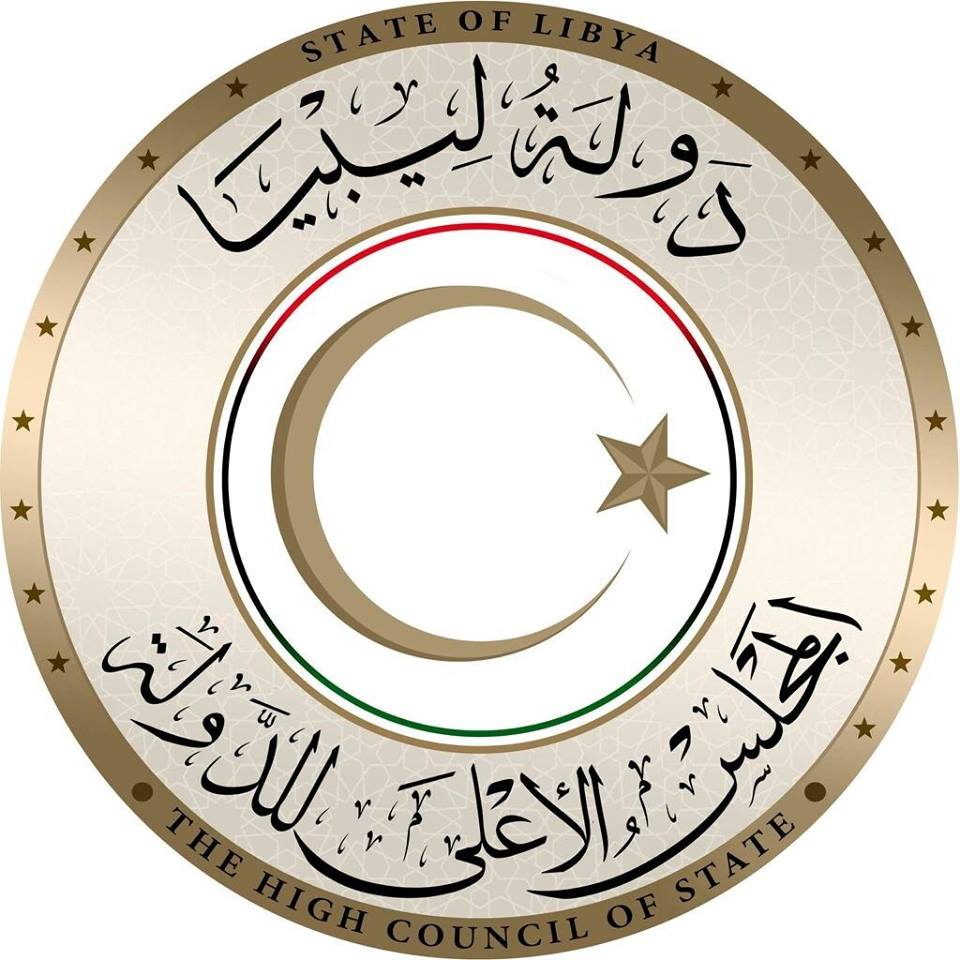By Sami Zaptia.
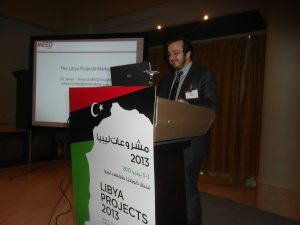
Tripoli, 4 June 2013:
Speaking at the second day of the MEED “Projects Libya 2013” conference in Tripoli today, Ed . . .[restrict]James, head of MEED Insights said that the award process of projects in Libya had been slow, bureaucratic and difficult to get funding for.
The awarding of contracts over the last decade had averaged at about US$ 4 bn per year, and had peaked around the 2007-09 period. From 2010 there was a marked slowdown in the awarding of contracts.
Libya is the largest in awarding contracts in terms of per capita, but when you consider its oil wealth, it is not up to its potentiality, or its oil-producing peers, Ed James added.
Over the last decade Libya had awarded contracts worth US$ 12.5 bn in the construction sector, US$ 11.7 bn in transport (mainly in renewing its airports), US$ 10 bn in power plants, US$ 4bn in water (mainly to the GMR), US$ 5 bn to gas, US$ 1.5 bn to oil (EPC) and about US$ 0.5 bn to industrial projects.
What is surprising is that for a hydrocarbon producing and exporting nation, Libya had awarded no major downstream oil construction projects over the last decade, James said.
The top clients for these contracts were the General Electricity Company of Libya (GECOL) with US$ 11 bn. This included water projects as GECOL used to cover the water sector as well.
ODAC was probably the second biggest awarder of contracts dominated by its large universities projects. The Railway Execution Board awarded large contracts to the Chinese and Russian companies for the execution of parts of the rail network.
The Housing and Infrastructure Board (HIB) was the fourth largest awarder of contracts over the last decade with its huge nationwide housing projects followed by the Great Man-made River Authority (GMR) and the Civil Aviation Authority with its airports projects.
Ed James noted that the contracts awards in Libya were dominated by the public sector. He also pointed out that despite the politics of the old regime, in reality there was no single dominant contractor, as is the case in say Saudi Arabia or other Gulf states. There is also a variety of companies operating in Libya from a variety of countries.
These included Korean, Russian, Chinese, Austrian, French, Malaysian, Brazilian, Italian, Japanese etc.
James was confident that once Libya stabilized it would move forward to awarding or re-awarding contracts for two very important reasons. The first driver is the fact that Libya needs to build and develop its infrastructure if it is to compete with its peers and develop both its hydrocarbon sector as well as diversifying into other sectors.
Secondly, Libya has the resources to meet its development needs and therefore can implement its future development goals and vision.
James predicted that Libya will be spending in excess of US$ 5 bn on average per year over the next decade. It also has the potential to rise to an average of US$ 10-15 bn per year as is the case of its hydrocarbon peers Kuwait and Qatar.
This can be financed by the fact that Libya has one of the highest oil reserves in the region but is one of the lowest producers. Most of the country has not been explored for hydrocarbons and therefore it has the potential to raise its production levels to the 70’s, James concluded. [/restrict]
